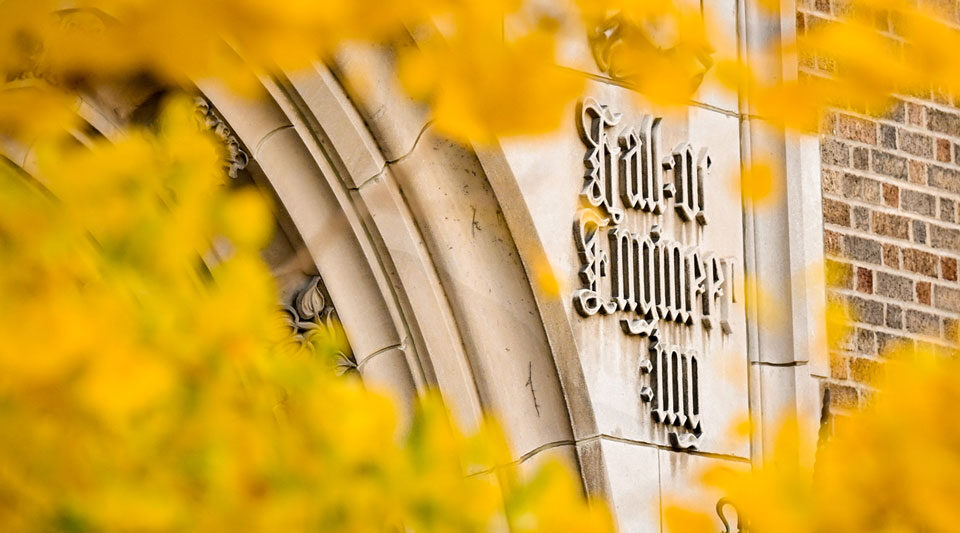This fall, the College of Engineering welcomes seven new postdoctoral fellows through the Provost’s Postdoctoral Fellowship Program and the Bioengineering and Life Sciences (BELS) initiative.
Six of the fellows will join as part of the Provost’s Postdoctoral Fellowship Program, a university-wide initiative that supports highly motivated scholars dedicated to research in service to the common good. One of the seven fellows will work with Bioengineering & Life Sciences (BELS), a joint initiative of the College of Engineering and College of Science that advances human health and wellness through interdisciplinary biomedical research and training.
“Postdoctoral scholars bring fresh ideas, rigorous training, and a collaborative spirit to the College,” said Patricia J. Culligan, the Matthew H. McCloskey Dean of Engineering and professor of civil and environmental engineering and earth sciences at the University of Notre Dame. “Their research will help us address society’s most urgent challenges with greater effectiveness and fairness.”
These fellowship programs support early-career scientists and engineers who demonstrate exceptional promise and propose bold approaches to solving complex problems in engineering and applied sciences.
Each fellow is paired with a primary research mentor from the College of Engineering and receives a competitive stipend, along with funding for independent research, training and professional development.
Provost’s Postdoctoral Fellows

Mingzhe Li
Ph.D., University of Utah
Advisor, Erin Chambers, Department of Computer Science and Engineering
“I will be advancing the development of techniques in topological data analysis (TDA) and combining TDA with optimal transport, interdisciplinary applications, and high-performance computing for visualization and other scientific problems.”

Claire Rubbelke
Ph.D., Syracuse University
Advisor, Melissa Berke, Department of Civil and Environmental Engineering and Earth Sciences
“My work is centered around studying the past in order to prepare for future climate change. I use a combination of organic biogeochemical proxies and climate models to study past hydroclimate change in Southern Africa.”

Vishal Sharma
Ph.D., Georgia Institute of Technology
Advisor, Karla Badillo-Urquiola, Department of Computer Science and Engineering
“My research guides the responsible—human-centered, ethical, and sustainable—development, deployment, and use of AI-enabled systems in work-related contexts, focusing on their sociopolitical and environmental implications.”

Great Umenweke
Ph.D., University of Kentucky
Advisor, Jason Hicks, Department of Chemical and Biomolecular Engineering
“My research focuses on the synthesis and design of site-directed multifunctional catalytic materials for biomass and waste valorization, as well as biomass-mediated CO₂ conversion into valuable fuels and chemicals.”

Joey Jiayao Wang
Ph.D., The Hong Kong University of Science and Technology
Advisor, Ahsan Kareem, Department of Civil and Environmental Engineering and Earth Sciences
“I will take an interdisciplinary approach at the intersection of meteorology and civil engineering to quantify the risk of typhoon-induced hazard to buildings within the context of climate change, and to develop optimized disaster prevention and mitigation strategies.”

Feng Xie
Ph.D., Rutgers University
Advisor, Ruilan Guo, Department of Chemical and Biomolecular Engineering
“My postdoctoral research will focus on developing advanced porous membranes for efficient gas separations, particularly for hydrogen separation and carbon capture.”
Bioengineering & Life Sciences (BELS) Fellow

Yechan Noh
Ph.D., University of Illinois Urbana-Champaign
Advisor, Huibin Chang, Department of Aerospace and Mechanical Engineering
“I design advanced biomimetic devices for brain-inspired computing as well as bio-inspired sensing and separation. Using state-of-the-art computer simulations, my work translates the molecular-level operating principles of living systems into engineered devices.”
The Provost’s Postdoctoral Fellows Program funds up to 18 two-year postdoctoral scholar appointments annually—six each in the colleges of Science, Engineering, and Arts & Letters.
Applications are currently being accepted for next year.
The deadline is December 15, 2025, at 11:59 pm EST.
—Karla Cruise, Notre Dame Engineering
